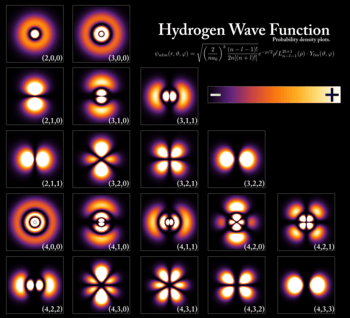Have you ever found yourself curious about how the universe works at its most fundamental level? I often wonder how the tiny particles that make up everything around us can lead to such complex phenomena. One area that has fascinated both scientists and enthusiasts alike is quantum computing.
What is Quantum Computing?
At its core, quantum computing is a revolutionary approach to processing information. Traditional computers use bits as the smallest unit of data, which can exist in one of two states: 0 or 1. In contrast, quantum computers use quantum bits, or qubits, that can hold multiple states simultaneously. This property allows quantum computers to perform complex calculations at extraordinary speeds.
The Essentials of Quantum Mechanics
Before understanding quantum computing, it’s crucial to grasp some basic concepts of quantum mechanics. This field of physics describes how matter and energy interact on extremely small scales, like atoms and subatomic particles. Let’s break down these concepts further.
Superposition
Superposition is one of the fundamental principles of quantum mechanics. It means that a quantum system can exist in multiple states at the same time until measured. For example, a qubit can be both 0 and 1 at the same time, unlike a classical bit that can only be one or the other.
| State | Classical Bit | Quantum Bit (Qubit) |
|---|---|---|
| Possible Values | 0 or 1 | 0, 1, or both (superposition) |
Entanglement
Another essential concept is entanglement, which occurs when particles become linked in such a way that the state of one particle directly affects the state of another, no matter how far apart they are. This peculiar relationship can be utilized in quantum computing to create complex networks of qubits.
Quantum Interference
Quantum interference is a phenomenon where different quantum states can enhance or cancel each other out. This property can be leveraged to improve the probability of finding the correct result when solving problems with a quantum computer.
How Quantum Computers Work
With a grasp of the basics of quantum mechanics, I can now explain how quantum computers operate. They do not merely function as faster versions of classical computers; instead, they utilize unique principles to solve specific types of problems more efficiently.
Qubits and Gates
At the heart of quantum computing is the qubit. Unlike classical bits, which are confined to binary states, qubits can exist in multiple states. Operations on qubits are performed using quantum gates, which manipulate their states. Quantum gates function similarly to classical logic gates but can perform complex operations due to the qubits’ superposition and entanglement.
Quantum Circuits
A quantum circuit is a model for quantum computation, analogous to an electronic circuit. It consists of qubits and quantum gates arranged in a structured format. The combination of qubits and gates helps create algorithms that can solve complex problems in fields such as cryptography, optimization, and simulation of quantum systems.
Why Quantum Computing Matters
You might wonder why quantum computing is important. To put it simply, it has the potential to solve problems beyond the capabilities of classical computers.
Speed and Efficiency
One of the primary benefits of quantum computing is its ability to process information at speeds unimaginable with classical computers. This efficiency can drastically reduce the time required to conduct calculations used in fields such as material science, pharmaceuticals, and financial modeling.
| Application | Classical Computing | Quantum Computing |
|---|---|---|
| Factorization | Days | Minutes or seconds |
| Drug discovery | Weeks or months | Days |
| Optimization | Hours to years | Minutes |
Complex Problem Solving
Some problems are inherently complex and require significant computational power to solve. Examples include finding the optimal route for delivery trucks or simulating molecule interactions for drug discovery. Quantum computers excel in these areas, making them invaluable to various industries.
Current State of Quantum Computing
I find it fascinating to see how quantum computing is evolving. Several organizations and research institutions are making significant strides in developing quantum technologies.
Major Players
Key players in the quantum computing landscape include:
- IBM: Known for its Quantum Experience, a cloud-based quantum computing platform.
- Google: Achieved a milestone with their quantum processor, Sycamore, showcasing quantum supremacy.
- Microsoft: Aiming to create a scalable quantum computer with its Azure Quantum initiative.
Quantum Software Development
As quantum hardware advances, the need for software that can effectively utilize these systems has grown. Several programming languages and frameworks are being developed, including Qiskit from IBM and Cirq from Google. These tools aim to facilitate the design of quantum algorithms and programs.
Challenges in Quantum Computing
Despite the excitement surrounding quantum computing, I acknowledge that there are still numerous challenges to overcome before it can become mainstream.
Decoherence
Decoherence refers to the loss of quantum information due to interactions with the environment. It poses a significant hurdle for quantum computations, as it disrupts the delicate state of qubits. Researchers are actively exploring ways to reduce decoherence effects, such as developing better qubit materials and error correction techniques.
Scalability
Building a large-scale quantum computer is another challenge. For quantum computers to reach their full potential, we need to scale up the number of qubits significantly while maintaining their coherence. This process requires advanced engineering and materials science.
Error Rates
Quantum computers are prone to errors due to the fragile nature of qubits. This concern has led to the pursuit of quantum error correction codes, which can help identify and correct errors during computations.
The Future of Quantum Computing
As I ponder the future, I can’t help but feel a sense of anticipation. Quantum computing might seem like science fiction, but it’s gradually becoming a reality.
Quantum Internet
One of the exciting prospects on the horizon is the development of a quantum internet. This would allow for secure communication based on quantum cryptography techniques, revolutionizing data security and privacy.
Overall Accessibility
As research continues, there’s hope that quantum computing will become more accessible for businesses and researchers. Cloud-based platforms are already providing access to quantum processors, paving the way for more widespread experimentation and innovation.
Collaboration Across Fields
The future of quantum computing will likely involve collaboration among various disciplines, including physics, engineering, computer science, and even philosophy. Such cooperation will usher in groundbreaking applications and approaches.
Understanding Quantum Algorithms
To harness the power of quantum computing, it’s vital to understand quantum algorithms, which are specifically designed to run on quantum computers.
Shor’s Algorithm
One of the most celebrated quantum algorithms is Shor’s Algorithm, which can factor large numbers exponentially faster than the best-known classical algorithms. This ability has significant implications for cryptography, as many encryption methods currently rely on the difficulty of factorizations.
Grover’s Algorithm
Another important quantum algorithm is Grover’s Algorithm, which speeds up the search process in unsorted databases. It offers a quadratic speedup compared to classical search algorithms, making it useful for a variety of optimization problems.
| Algorithm Name | Speedup Compared to Classical | Application Area |
|---|---|---|
| Shor’s Algorithm | Exponential | Cryptography |
| Grover’s Algorithm | Quadratic | Database searching |
Ethical Considerations and Implications
With great technology comes great responsibility. I think it’s essential to consider the ethical implications of quantum computing as it continues to develop.
Security Concerns
The ability to decrypt data previously considered secure poses challenges for privacy and cybersecurity. While quantum computing offers advanced encryption techniques, it also raises questions about the future of data security in a quantum world.
Job Market Shifts
The rise of quantum computing may lead to shifts in the job market. As with any transformative technology, certain traditional roles might diminish, while new opportunities emerge in quantum programming, research, and related fields.
Global Responsibility
The international community will need to work together to ensure that quantum technology is developed responsibly and equitably. This includes addressing disparities in resource allocation and access to quantum tools.
Getting Started with Quantum Computing
If you’re as intrigued by quantum computing as I am, you might want to embark on your own journey into this exciting field.
Learning Resources
- Books: There are numerous books available that explain quantum computing concepts. Titles such as “Quantum Computing for Computer Scientists” can provide a solid foundation.
- Online Courses: Platforms like Coursera and edX offer courses created by universities and tech companies to help learners grasp the fundamentals of quantum computing.
- Community Forums: Joining online forums and social media groups can connect me with others who share my interests and questions in quantum computing.
Hands-On Experience
For those eager to get involved, several platforms allow for hands-on experience with quantum programming:
- IBM Quantum Experience: A cloud-based quantum computing service where I can experiment with quantum circuits using real quantum computers.
- Qiskit: IBM’s open-source software development kit, suitable for creating quantum circuits and algorithms.
In Conclusion
The world of quantum computing is as fascinating as it is complex. I hope I’ve shed some light on this intricate subject, and I’ve shared my excitement about its potential.
As research advances, I find myself both eager and curious about where this technology might take us. Whether it’s revolutionizing industries or prompting deeper questions about the nature of reality, quantum computing is a domain that continues to inspire me.
So, why not join me on this journey? There is so much more to learn and discover, and the possibilities are limited only by my imagination. What will I uncover next in this captivating world?






